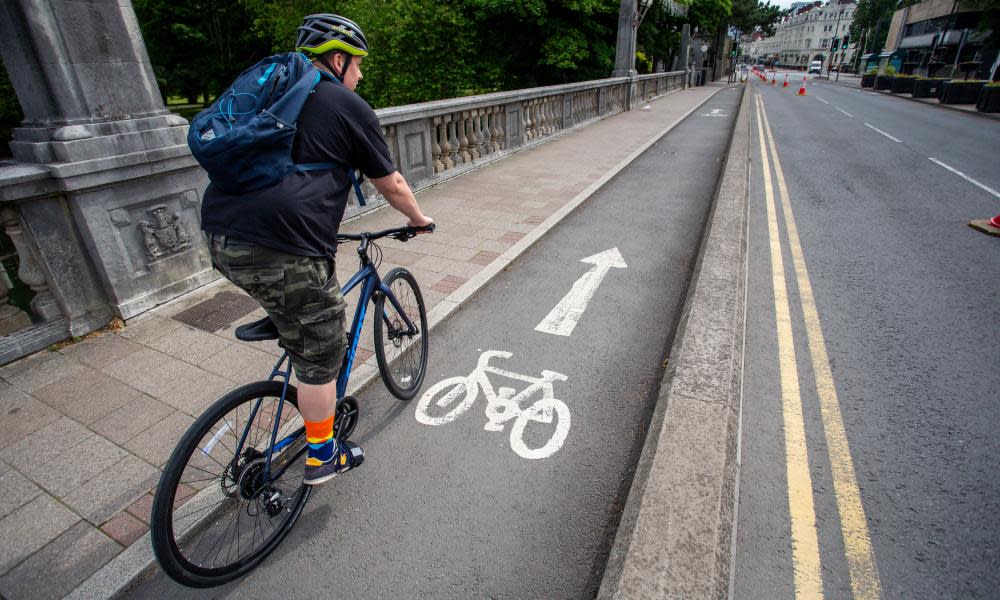Forging a plan that works for all road users

The reaction to councils closing roads using Covid-19 emergency measures isn’t about being anti-cycling or pro-Tory (English councils backpedal on cycling schemes after Tory backlash, 15 July). Most residents support helping people drive less and cycle more. But in Dulwich, south-east London, as elsewhere in the UK, roads have been closed without considering the consequences for people who have no choice but to use their cars, such as elderly and disabled residents.
Closing the only road that connects the two halves of our community has simply pushed our traffic on to other people’s streets, creating more congestion and pollution. Timed restrictions at peak times, instead of closures, are a much fairer way of balancing differing needs and uniting the community.
Richard Aldwinckle
Dulwich, London
• Your article highlights how important it is for both central and local governments to work together to ensure that the reduction in car use we saw during the lockdown continues now that measures are easing. Walking and cycling has proved to be an important part of our fight against the virus. In May, the government announced the emergency active travel fund, urging local authorities to reallocate road space to walking and cycling in response to the Covid-19 crisis.
Eighty-nine local authorities have implemented a total of 503 schemes that make more space for pedestrians and cyclists. This is a positive step forward in ensuring people are able to move around their towns and cities in a safe and socially distanced way, while also addressing the social inequalities that have been highlighted during the pandemic.
Covid-19 has made it clearer than ever that we need to change the way we move around in order to create healthy and equitable places for people to live and work. Data from Bike Life 2019 shows that mobility for many people in the UK is not equal or inclusive. With 46% of those in socioeconomic groups D and E in 12 major UK urban areas not having access to a car, cycling infrastructure is a matter of social justice.
Therefore it is important, as lockdown rules continue to ease, that we do not solve one crisis by perpetuating others, and that the temporary traffic measures that have been rolled out become part of a long-term solution to urban mobility.
Rachel White
Head of public affairs, Sustrans
• Join the debate – email guardian.letters@theguardian.com
• Read more Guardian letters – click here to visit gu.com/letters


